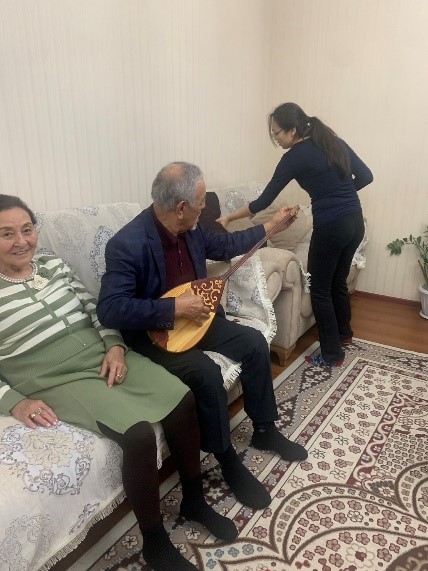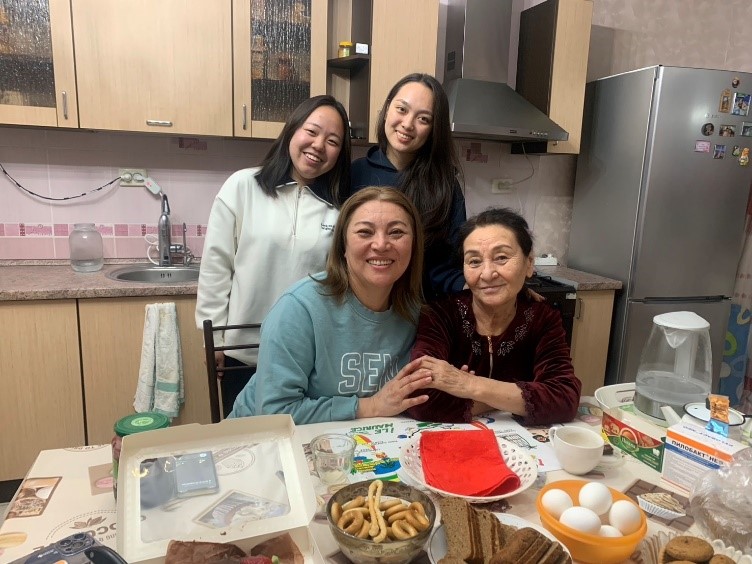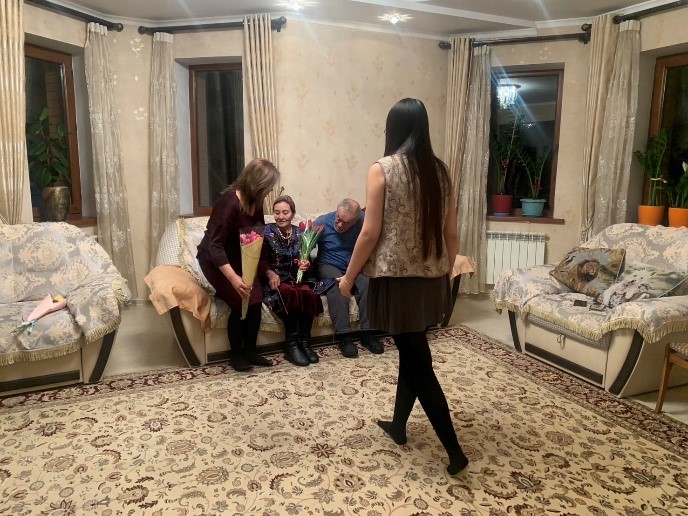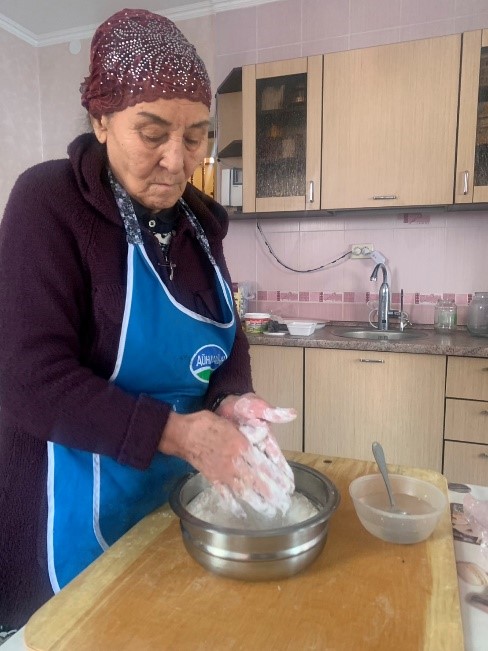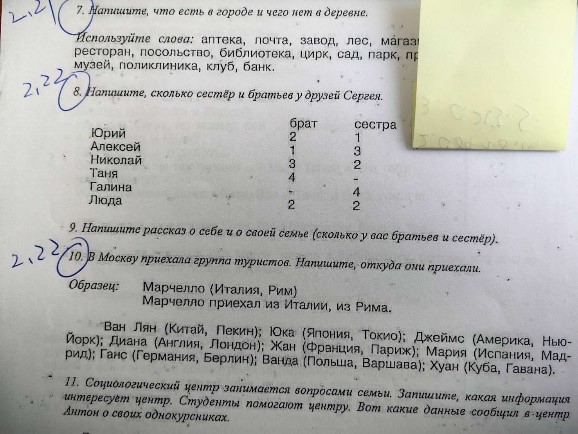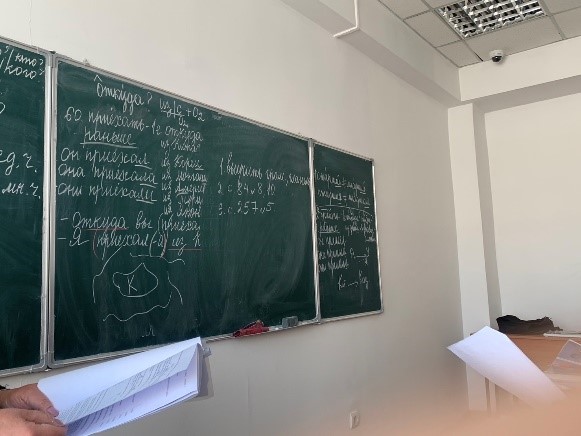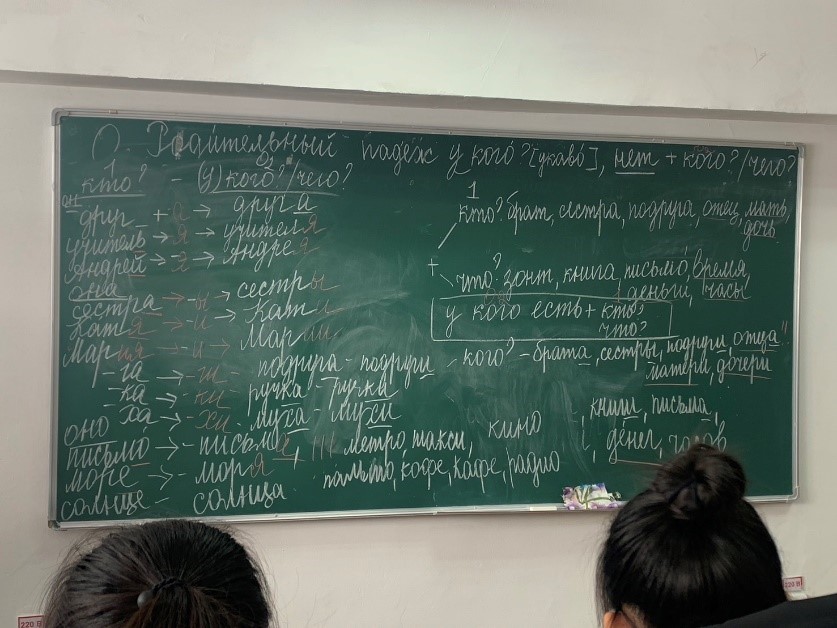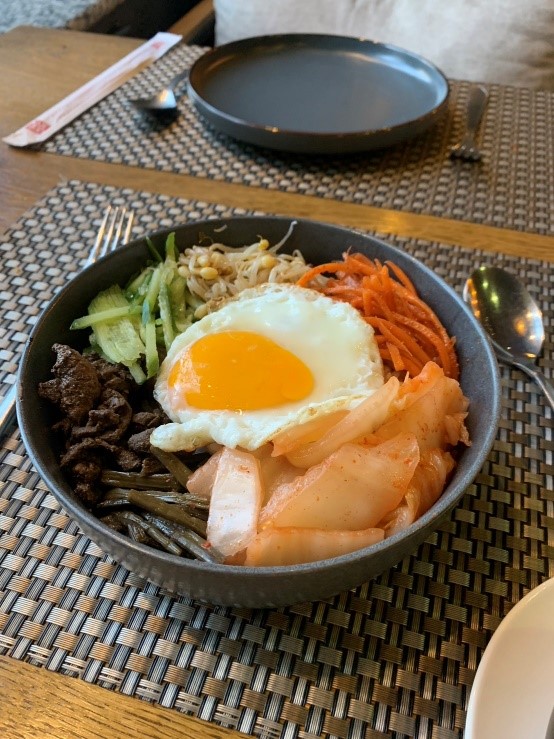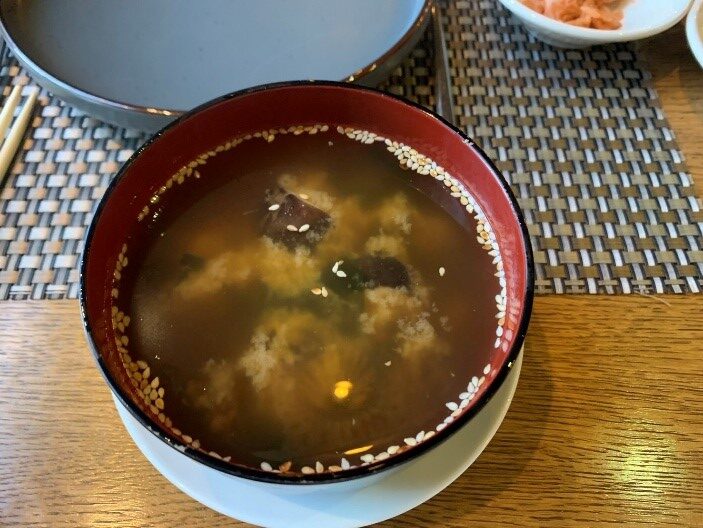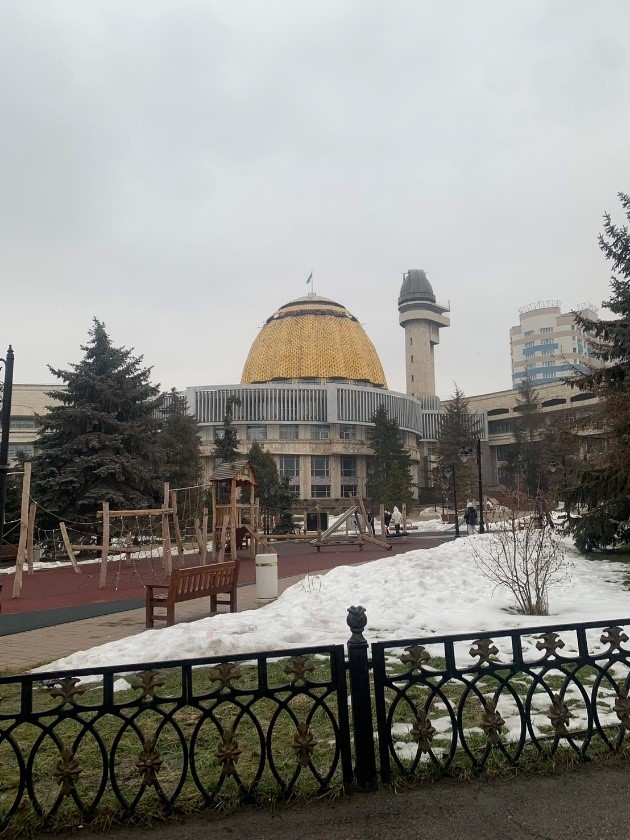Russian and Kazakh language training Report
School of Social and International Studies, College of International Studies
Okamoto Mimori (2nd year)
1. Considerations about the Republic of Kazakhstan
i. About religion
I will consider the religion that impressed me the most. Although it was probably something I should have avoided, I had the opportunity to talk briefly about religion with students from Kazakh National University and my host family. The students of the Kazakh National University were of the same generation as me. She was interested in Japanese anime and was studying Japanese. Therefore, she had a good understanding of Japanese culture and traditions. Also, perhaps because she was young, I had the impression that she was tolerant of diversity. The feeling was very close to that of the younger generation in Japan. She told me that she thinks the value of Japan’s eight million gods is wonderful. My host family, on the other hand, was a little different. My host family consisted of a grandfather and grandmother in their 70s. They believed in Islam, and lived according to the teachings such as Ramadan and not eating pork. I don’t think that they don’t recognize the existence of other religions, because they were never forced to be Muslim. However, they did not try to learn about other religions, nor did they seem to be aware of their existence. I felt that this was the difference between young people and the elderly. Of course, the level of faith varies from person to person, but the young people’s feelings were similar to mine, and I couldn’t really understand my host family’s feelings. I had an image of the former Soviet Union and developing Central Asia, but I felt that it was no different from the young people of Japan in terms of their sense of connection with the world and respect for diversity. It was also an interesting discovery that there are differences in perception between young people and the elderly. We tend to forget about the personality of the person in front of us and get caught up in stereotypes about Kazakhs, but of course there is diversity among Kazakhs, and there are many different types of people. There was also a significant gap between young people and the elderly, and we were able to capture that trend.
ii. On the Diplomacy of Central Asia
In the current world situation, it seems to me that the Central Asian countries are in a very difficult position. As long as Russia is waging war in Ukraine, I am obsessed with the choice between whether the Central Asian countries will agree with Russia or whether they will be on the side of the so-called West. However, it becomes clear that balance is important for the Central Asian region.I believe that the need to maintain an appropriate distance from Russia, China, and other Western countries is a struggle for Kazakhstan and at the same time a way to survive. I thought that this is the kind of society that exists as one nation and conducts diplomacy in a balanced manner with other countries, rather than being on someone else’s side. On the other hand, I felt that the idea that Japan is an ally of U.S. and that the enemy of our ally is our enemy is deeply rooted in Japanese society. I think this is due to the difference in diplomatic stance between Japan and Kazakhstan. I believe that behind this diplomacy is the idea of not denying everything about Russia, but rather acknowledging that today’s development is thanks to the Soviet Union. I could feel it there, that the rule that seemed all evil to us, needless to say, also brought good development. For this reason, Russian is still used on a daily basis in Kazakhstan, and I think that coexistence with ethnic Russians is also possible. And by continuing to engage while maintaining an appropriate distance, they will be able to obtain more technology and capital from many countries, including Russia. This is diplomacy that emphasizes the balance of the Central Asian countries. This was a perspective that I would not have been able to notice if I had just lived in Japan or the West.
2. Training Outcomes
Improvement of Language
First, let me summarize my Russian language ability before the training. All I learned was greetings and some Cyrillic alphabet. The first hurdle I hit was cursive writing. The teacher was writing on the blackboard, but at first I didn’t even know which letters it was. I went back and forth between the reference book and the blackboard and managed to decipher it. However, this did not allow me to copy the words on the blackboard, and I missed many times. The first part of the class was an exercise in transcribing the words on the blackboard in written form. The next difficult thing was listening and speaking. Not only could I not answer the teacher’s questions, but I also didn’t understand most of what the class was saying. The only thing I understood might have been the greetings before and after class. I only studied greetings, so I think it’s natural. Now, let’s look at the results after one month. I mastered cursive in a few days, and I started to catch up with the writing on the board. And as a result of diligently studying the text every day, I was able to see and pronounce the Cyrillic letters. Although quite slowly, I am now able to pronounce sentences and words. And while a month ago I couldn’t understand 99% of what my teacher said, I now feel like I can understand about 30% of what my teacher says. I think I understand about 50% of the content of the class. That may not seem like a big number, but it’s a big improvement for me. My teacher only spoke Russian, so I couldn’t understand any of the early lessons, but it was a good opportunity to study Russian in Russian. Of course, I studied by doing my own assignments, but I mainly studied by getting help from other students in my class who could speak English, and by asking other students at the University of Tsukuba about things I didn’t understand. The advantage of studying Russian in Russian was that I learned the pronunciation and was exposed to a lot of Russian, so I got it into my body rather than my head. It was still difficult for me to understand abstract events, such as the reasons for the adoption of that case, in a Russian class. However, when I was taught by Japan students and students from the Faculty of Oriental Studies, there were many things that made sense to me, and I found it interesting. This made me want to continue my studies after returning to Japan.
3. Other things I found interesting
Almaty, a multiethnic city
I had heard that Almaty was a multi-ethnic city, and I was able to experience that for myself while living there. Of course I was able to see Japan as well, but I felt that the influence of Korean and Chinese cultures was particularly strong. There were some stores selling Japanese food and products, but there were far more stores related to Korea. t was not a store for Koreans in Kazakhs, but such stores and products were popular among Kazakhs as well. The differences in cultural transmission between Japan and Korea are thought to be related to history, such as immigration from Korea, and I would like to investigate them in the future. I also felt that Chinese culture has an even greater influence on the lives of Kazakhs. In fact, a large part of it was incorporated into Kazakh culture.
4. Summary
As for living in the city, I don’t think you need to worry too much since you can basically find everything you need in the city, both in homes and in stores. Rather than that, I think that if you learn a little language in Japan, your life will be richer. Also, if you want to experience various cultures and facilities, it is a good idea to do a little research in advance and plan your visit accordingly. Even if you do not have a specific place in mind, you should think about what you want to achieve, because if you tell the local people that you want to do something, they will think of a way to make it happen.

